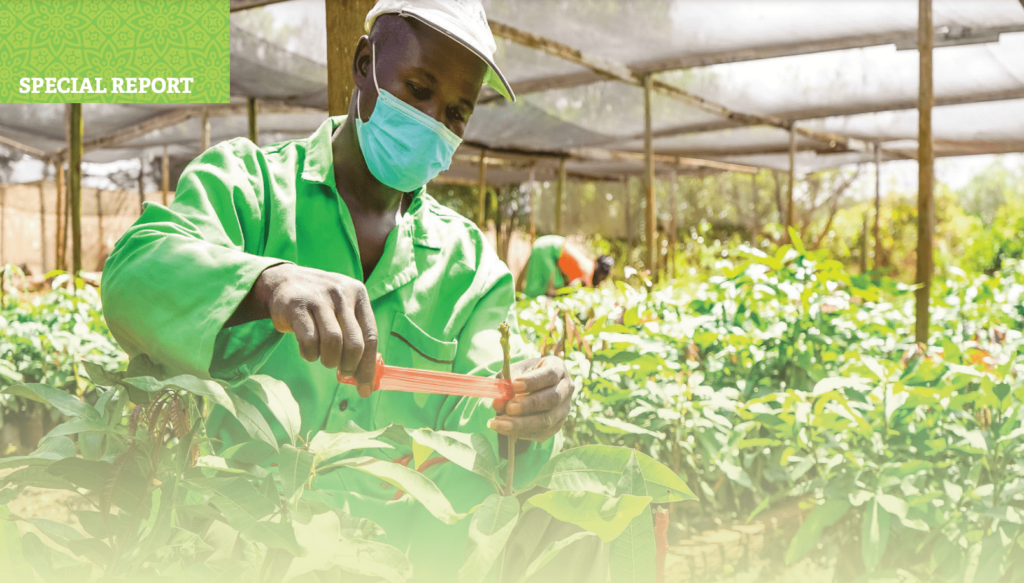By Murimi Gitari
In these rural communities, smallholder farmers account for 75 per cent of the agricultural output yet they have been largely neglected in the five decades of post-colonial agricultural policy-making in Kenya.
A report by the World Bank shows that small-scale production accounts for 70 per cent of the marketed agrarian produce compared to large-scale farming, which mainly involves growing commercial crops, such as tea, coffee, maize, sugarcane, and wheat. The European UnionEast African Community Market Access Upgrade Programme (MARKUP) has seen a transformation of the agricultural sector in Kenya.
The 35-million euro programme ended this year after four years and aimed to enhance competitiveness and market access for select Kenyan produce.
The main objective of the programme was to increase exports of agribusiness and horticultural products for small and medium-sized enterprises while promoting regional integration and access to the European market across 12 counties in Kenya namely Makueni, Machakos, Embu, Uasin Gishu, Trans Nzoia,
Kajiado, Nakuru, Busia, Taita Taveta, Bungoma, Siaya and Homa Bay counties. The United Nations Industrial Development Organisation (UNIDO) partnered with Kenya and the EU to implement the project through various State agencies in the agricultural sector.
Stefano Sedola, the Chief Technical Adviser at UNIDO said: “We did this in two ways by strengthening the institutional regulatory framework for safety and working with producers and exporters through increasing revenue to the smallholder farmers, reducing the cost of technical assistance required.
We also supported exporters to go and identify market opportunities in market linkages like Europe, Middle East and others.” “With the closure of the programme, we have witnessed an increase in revenues to farmers at a rate of 60 per cent.
UNIDO Country Representative Kawira Bucyana said the programme worked on improving market linkages like establishing a challenge fund for exporters, with some participating in the Berlin Horticulture Expo 2023.
There was also an increase in marker access by 45 per cent. We worked with a community of 1,500 farmers and exporters with an ambition to scale up this initiative to improve
productivity and increase revenues in the horticulture sector in the country, which had been dominated for years by low productivity and post-harvest losses.” Bernard Kiio, one of the beneficiaries of the project and a mango farmer from Makueni County, said the project had boosted income for farmers in Makueni.
“From this project, we have been trained in taking care of our mango trees in terms of pruning, pesticide application and market accessibility. We have been taken through the process of getting certified by relevant bodies for the export markets,” said the farmer, adding that he used to harvest two tonnes of mangoes compared to 11 tonnes currently.
Dr Lusike Wasilwa, the Director of Crop Systems at KALRO, while speaking during the closing event of the programme, said a lack of high-quality and certified planting materials is a setback in the horticulture sector. “Certified seeds guarantee higher germination percentage and yields. Uncertified seeds are often prone to stunted growth, leading to poor production and plunging farmers into heavy losses,” said Dr. Lusike.
The MARKUP programme has increased the value and market penetration of the supply chain of more than 1,500 farmers, according to Mr Sedola. He added that the number could increase to 100,000 with proper strategies and expanded market access at an estimated growth of 4o per cent.

